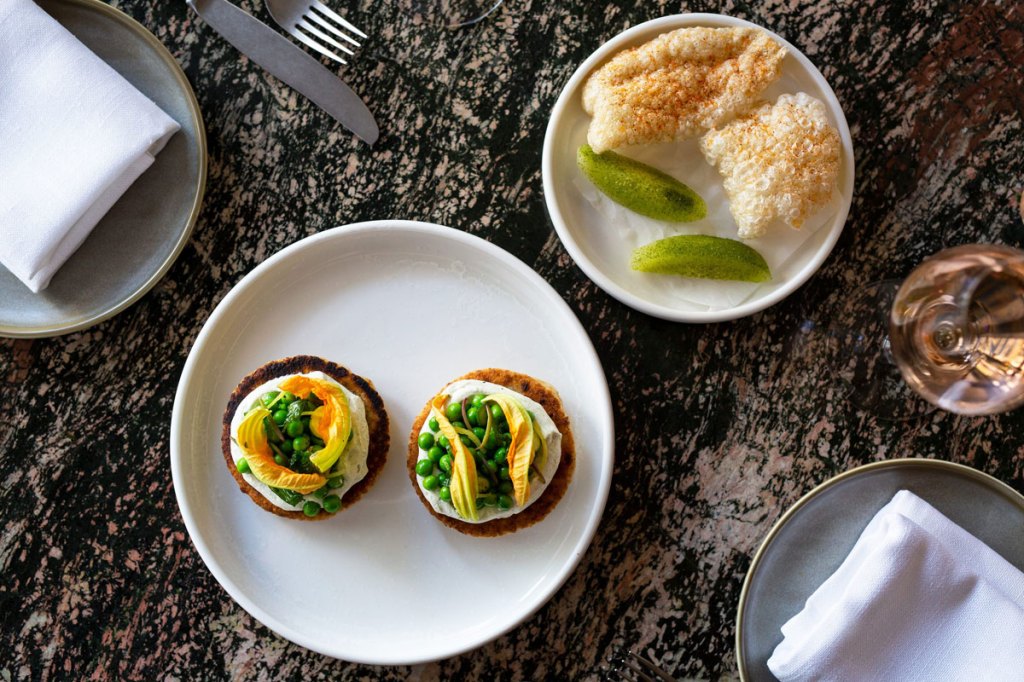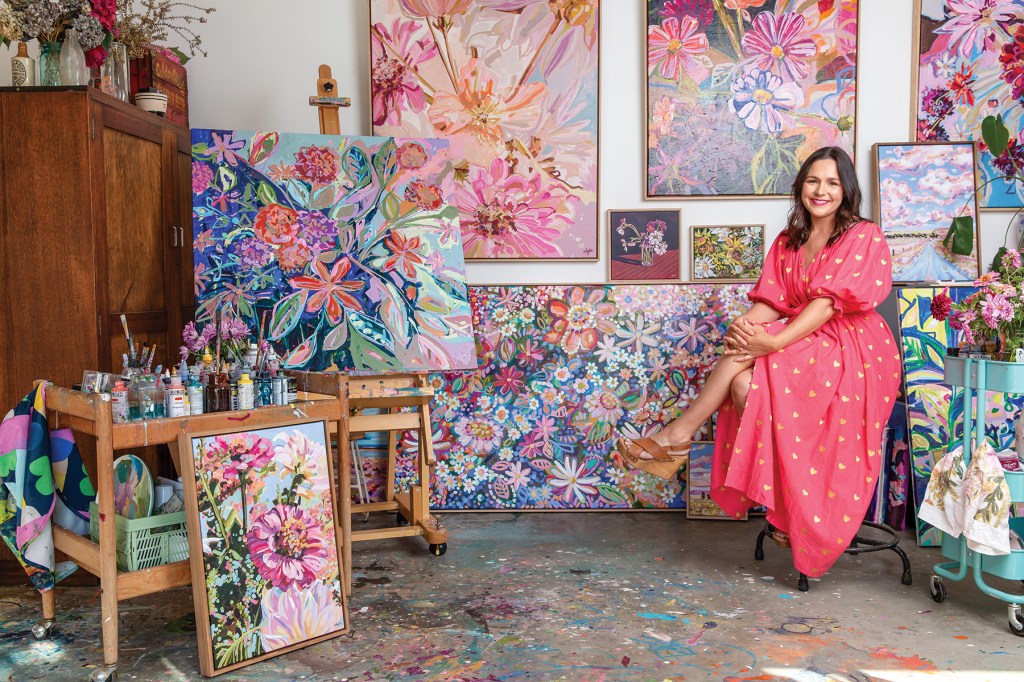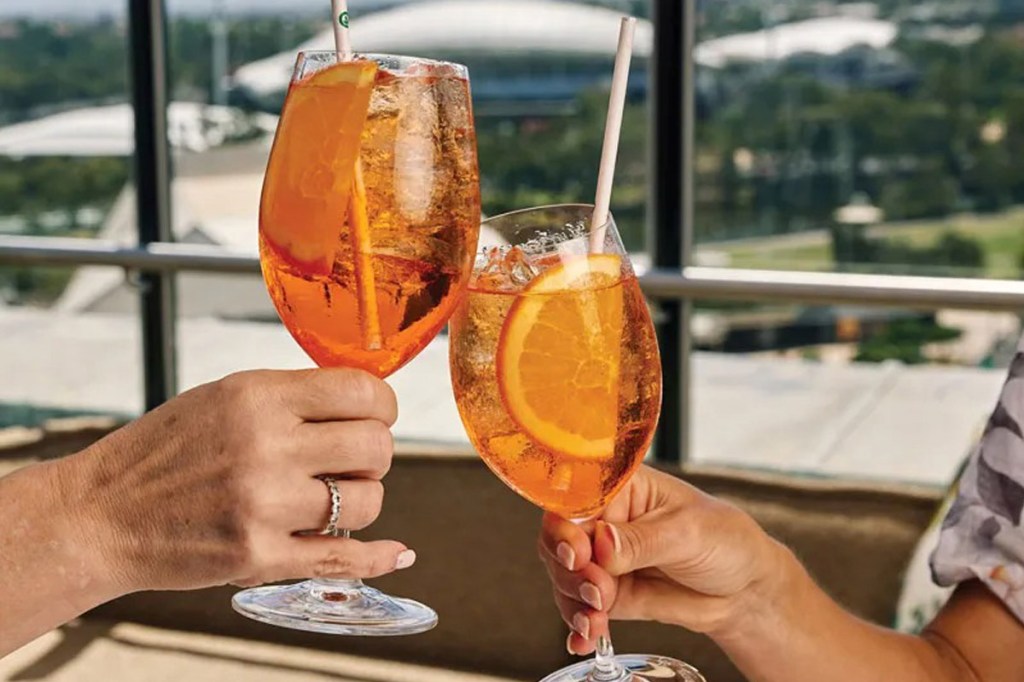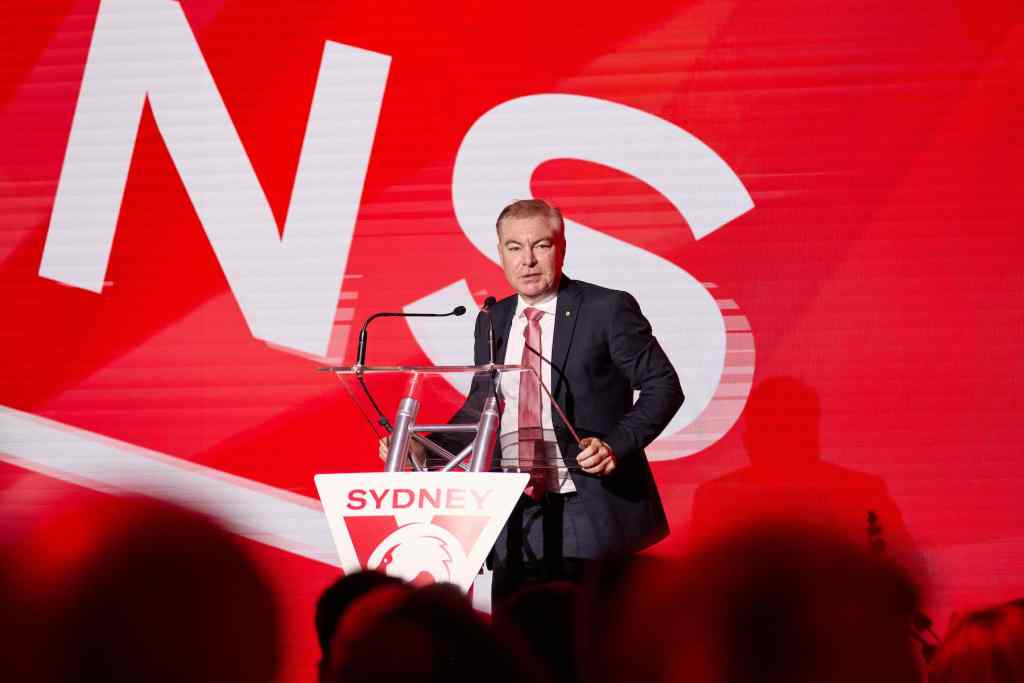Meet Events SA chief Hitaf Rasheed
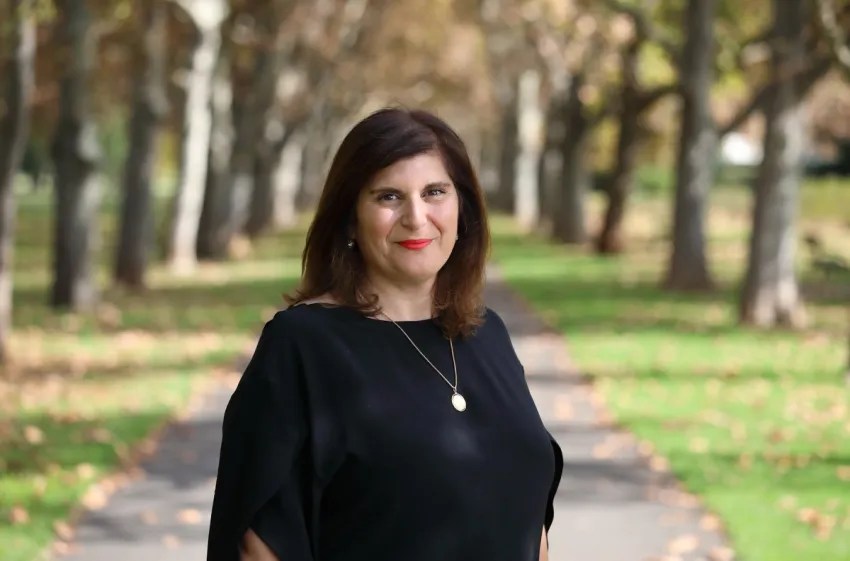
Meet Hitaf Rasheed – responsible for many of the state’s biggest events as the leader of Events South Australia. She is passionate about her family, the Port Adelaide Football Club, where she worked with for almost a decade, and promoting South Australia. And there’s a lot more to her story.
Can you paint a picture of your childhood?
I grew up in Magill with my parents, Noel and Ibtihaj (Ibby), and my brother Roger. We always had a family pet poodle when I was growing up.
My brother Roger and I are first-generation Australian, as Mum and Dad were born in Lebanon. All of Dad’s family lived in Adelaide and Mum’s family was in Lebanon when I was growing up.
Family was very important to us. Dad had two brothers and a sister and they all lived close by and we spent a lot of time with family, uncles, aunties, cousins, which was fantastic. We also spent time with the broader Lebanese (Druze) community, with many more aunties, uncles and cousins.
The other side of our life revolved around sport. I always say sport in our household was our politics and our religion – it’s what we watched on television, it’s what was did on weekends and it’s what we talked about around the dinner table. It was our family’s passion.
Mum very quickly became a passionate Port supporter (following Dad, who followed his cousin) and she used to take me and my brother and often our cousins to Port SANFL games each weekend.
Our weekends were all about sport – Roger playing football and tennis and me playing netball and tennis. Then, as we got older, our weekends right through summer were spent at tennis courts all around Adelaide as the family went to watch Roger play in state and regional tennis tournaments.
I had a brilliant childhood, filled with lots of love, laughter, family, friends and food … don’t forget the food. My mum was a great cook and still is.
What’s your most vivid childhood memory?
Not necessarily my most vivid, but one of my most vivid memories of my childhood was getting news that Mum’s mum was dying in Lebanon. Mum got a call to say if she wanted to see her mother again, and if she wanted her mum to meet her children, she would need to get to Lebanon immediately. Within one week, Mum had booked flights, organised passports and we travelled to Lebanon. I remember travelling Lufthansa and having a long lay-over in Bombay (now Mumbai), sleeping on chairs in a near-empty airport.
Lebanon was in a state of civil war in 1978, so we arrived to a very foreign country indeed. But we met Mum’s side of the family and I remember vividly our time in Lebanon, and how the people were so generous and just loved us and loved to have fun, even in the middle of wartime. I also remember having a gun under my bed, guns and the army being part of normal life there, lots of checkpoints where we were instructed to put our heads down and not speak, and seeing bombing into Beirut from in front of our house, which was in a small mountain village, Aitat, overlooking Beirut. I also remember crying and crying when saying goodbye to my grandmother who died a few days after we left.
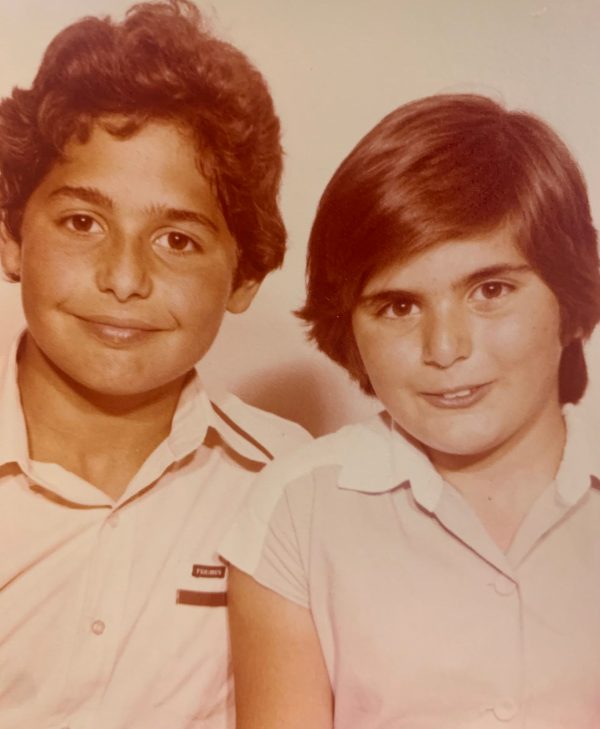
Hitaf as a child (right) with brother Roger.
What did you want to be when you grew up?
I think I wanted to be a pharmacist for a while, I’m not sure why. I also remember wanting to be a journalist. When Roger was taking his tennis seriously, I was right into tennis and did daydream of being a tennis player, too, but I didn’t have the talent or the mental aptitude to be a professional player. I ended up studying economics, majoring in accounting, mainly because one of my great friends was doing the same, and had every intention of becoming an accountant. It didn’t quite play out that way.
How was school life for you?
You might like
I loved school. I remember it as a place I got to go every day, hang out with my best friends, and laugh and laugh. I was a pretty good student but if I’m honest I liked the social part of school best. Messing around at recess and lunchtime, running late to class, playing sport. I can guarantee you there wouldn’t be one report card that didn’t go something like this… “I love Hitaf’s energy, she can be a positive influence in class and when she applies herself she is an excellent student, but she is easily distracted and at times can be disruptive to others in the class”.
My year 11/12 geography teacher is one of my great friends now. She often tells the story that in our very first geography class she thought to herself, “that dark-haired girl is going to be trouble”. In the end, I was lucky enough to be deputy head prefect at secondary school, St Peter’s Girls School, so I couldn’t have been all bad but I probably have a long line of teachers to apologise to.
I do love that my best friends from school are still my best friends today – how good is that!
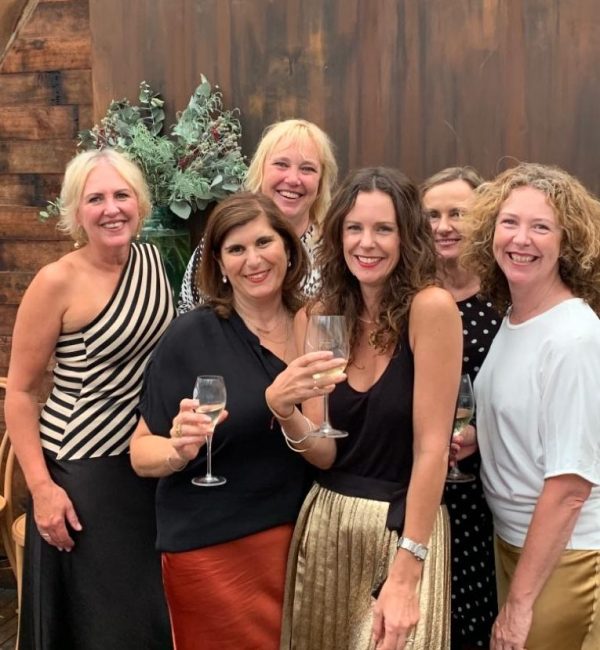
Hitaf has a tight-knit group of friends.
Best and worst teenage memory?
I honestly don’t have best and worst memories, but here are some things I liked and some I didn’t. Best – playing tennis at Pembroke after school regularly, practising hard, having fun, flirting with the boys, playing tennis at the Pembroke Tennis Club with a diverse group of people and winning premierships.
Worst – being a daughter of Lebanese parents who were much stricter on what I could and couldn’t do, compared to my best friends at school, whose parents were much more liberal.
Most pivotal moment in your life?
Having finished my degree, I decided to delay my career in accounting and I went overseas for a year to do the backpack thing with a couple of friends (although we didn’t really backpack, and only stayed in a hostel once). This trip included travelling on the ATP Tour with my brother Roger, who was playing professionally at that time, for about six weeks.
It was at that point that I decided I wanted to work in sport and, in particular, tennis. Roger introduced me to an ATP tour manager who gave me career advice, and it sent me on a path which included volunteering around the US at professional tennis tournaments, volunteering with the ATP office in Sydney (no longer there), undertaking post-graduate studies at Deakin University in Melbourne (the first Business Management – Sport course in Australia) and then a lifetime of working in sport.
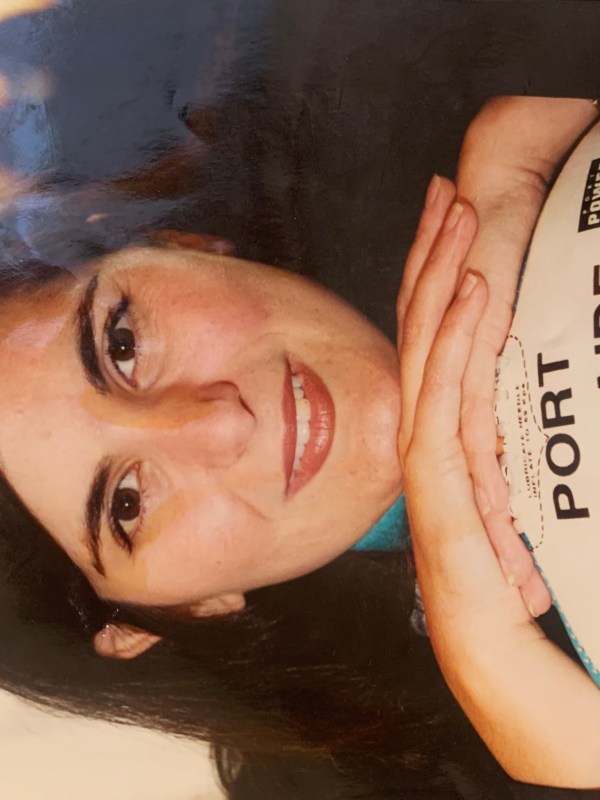
Hitaf when she was managing communications for Port Adelaide Football Club.
How did you end up working at Port?
After Port got the licence to go into the AFL I wrote to CEO Brian Cunningham to congratulate the club and to let him know what I was doing – I was working at Baseball Australia at the time in Sydney – and indicated to him that at some point I would love to work for the club. A few years later (1998) Port were in the market for a PR Manager – it’s a long story, but I made my way back to Adelaide and was working for the SANFL (a job I really enjoyed but ultimately only did for five months). I put my name forward for the role and was successful. It was the start of nearly a decade in my dream job.
I absolutely loved my time at Port. I was someone who loved sport but wasn’t talented enough to be an athlete. The media and communications team was a team of one, then two, then three, then four – we worked hard, had fun and had the opportunity to innovate. I was on a journey with a group of people (football and non-football staff) striving to win the ultimate. I was the only female who travelled with the team. I formed lifelong friendships. I loved what I did. I loved the opportunity to work with an elite sports team, I loved the opportunity to make an impact on people’s lives when our players would do visits within the community – from parents who wanted to see a smile on the face of their children who were going through a difficult period, or even worse, had a terminal illness. It was a position of privilege and I don’t think I ever took it for granted.
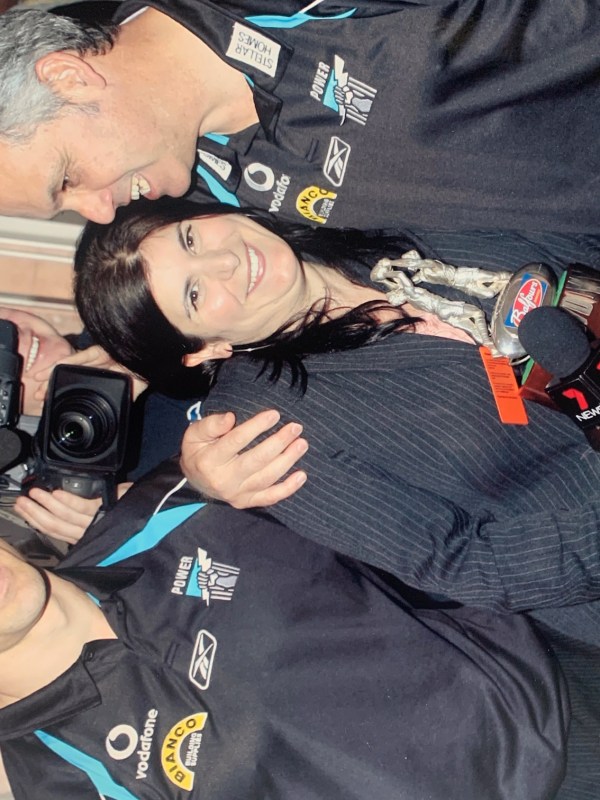
With Warren Tredrea and Mark Williams at her last media conference with Port.
High and low points of the time?
The low point is easy – losing the 2002 and 2003 qualifying finals, after finishing the year on top of the premiership ladder. If I have to pick one high (made all the better because of the preceding lows) – winning the preliminary final in 2004 and experiencing Grand Final week (it was just such a fun week, we were finally there, you didn’t sleep because you had too much work but you didn’t care), then winning and getting to experience Punt Road with 10,000 Port supporters after the game.
Any particular players /colleagues you looked up to?
I was influenced often and by many, and still am. But the most influential person would be coach Mark Williams who had the biggest impact on me – just his desire for success and constantly challenging the way things were done. Also his attention to detail and the passion with which he approached his role and the genuine interest he had in people. There were many others – CEO Brian Cunningham for his calmness and ability to negotiate and take people on a journey, Stuart Dew and Brendon Lade for their generosity, Warren Tredrea and Kane Cornes for their professionalism and desire to be great, our timekeeper/support staff member Clarrie Hoffman, who taught me the values of the club and the experience, and my partner in crime in communications Daniel Bryant, for his loyalty and convictions.
Another sportsman who I am great mates with is Chris Dittmar. He is Roger’s best mate and I have known him for years. Chris is like my “other brother”.
Was it hard to succeed in such a male-dominated world?
I honestly never really thought about it. I had already spent a lot of time in male-dominated environments, be it my voluntary work in sport including on the ATP Tour, working in Baseball Australia for three years, then the Adelaide Giants and the SANFL. It felt very natural to me. But in looking back I definitely had to work harder to get people’s trust and respect – you were breaking new ground, both at the club and in the sport.
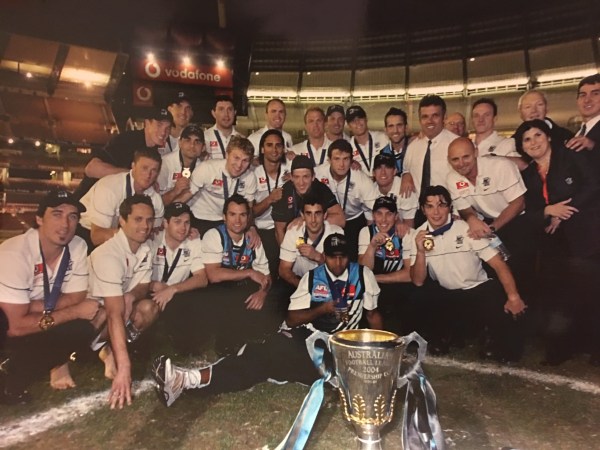
Hitaf (middle row, far right) with Port’s premiership-winning team in 2004.
Tell us about your role at Events SA
Subscribe for updates
I joined the South Australian Tourism Commission as head of Events South Australia in 2008. I was very lucky to end up in this role. I wasn’t looking at the time – it came about through a chance meeting with the then-CEO of the SATC, Andrew McEvoy. After nearly 10 years with Port Adelaide, and given the opportunity this job provided, the time seemed right to make a move. I haven’t regretted the move at all.
The role is leading a team to manage, support, create and promote events which drive tourists to South Australia and promotes the state as a tourism destination. We manage and deliver the Santos Tour Down Under, Superloop Adelaide 500, Tasting Australia, Bridgestone World Solar Challenge and National Pharmacies Christmas Pageant. We support a range of major and regional events, and we look to supplement our ongoing events with a range of one-off events such as the NRL State of Origin and the Australian Masters’ Games, as well as supporting the creation of new ongoing events, as well as the industry at large.
Every day is different and the role is diverse. Essentially my role is to lead a very talented and motivated team and be part of the executive team of the SATC to deliver on the State Tourism Plan and the SATC Corporate Plan. It’s pretty exciting and our team definitely feels a responsibility for the work we do, which ultimately creates jobs for South Australians and contributes to the state’s confidence, community and brand.
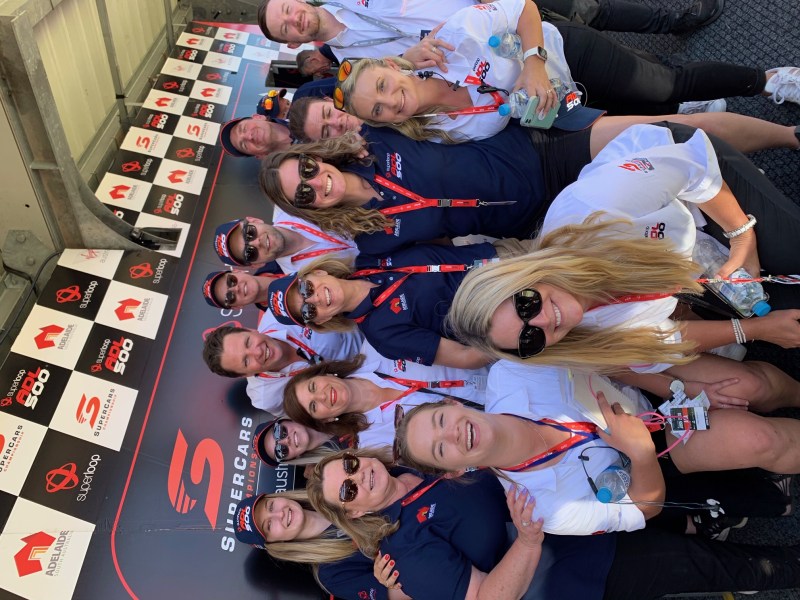
Hitaf with her Events SA colleagues.
What have been your career highlights there?
I was so lucky: I arrived when we got the opportunity to secure Lance Armstrong for the Santos Tour Down Under, who was looking to make his return to cycling. It was pretty exciting and with the support of the then-Premier Mike Rann, Tourism Minister Jane Lomax-Smith, along with Andrew McEvoy and Mike Turtur, we had to work hard to make that happen. It would be my first Santos Tour Down Under, Lance came and the event more than doubled in size across every metric. That was pretty amazing. We all know what has since happened with Lance, but we didn’t know that at the time, and my pride is that we have continued to grow this event into one of the best sporting events in the country and indeed one of the best cycling events in the world, the start of the UCI WorldTour.
But there are plenty of other highlights – working with a team and with the leadership of Simon Bryant to see the evolution of Tasting Australia, returning to being the most significant food and wine festival in the country, securing Liverpool to play at Adelaide Oval in 2015, securing the Mundine v Green final bout for Adelaide Oval. There are lots.
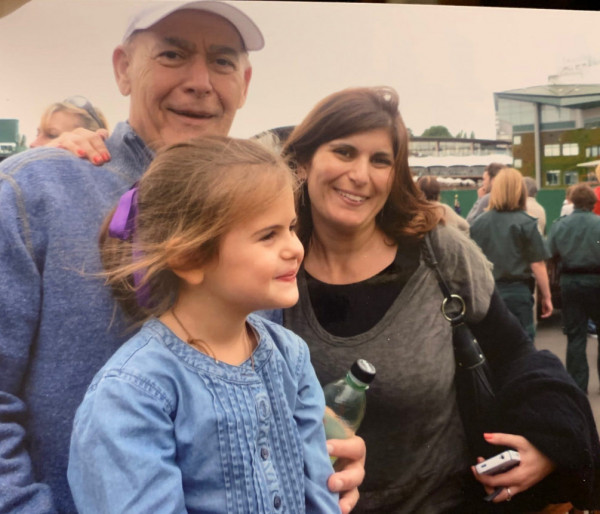
Hitaf at Wimbledon in 2011 with her father and niece India.
How often do you see your family these days?
I see and speak with them a lot. I see or speak with my mum every day. Sadly, my dad has dementia and mum is his full-time carer at home, so I try and spend as much time as I can with them. Mum is my absolute hero in life. I’m in awe of her resilience, positivity, the way she has reinvented herself. She’s an amazing woman, who is full of love and energy. Roger and I speak every other day, if not every day. And my niece India is my greatest joy and the greatest joy of our family, as well as Foxy the Labradoodle. I also have extended family members who I see. Family is important to me.
Married? partner?
I’m single; have been forever. I’m open to suggestions.
Do you feel a pressure about meeting “the one”?
My mother always says she can’t die until she sees myself and Roger settled and happy with partners. I’m not sure she’s worked out this is not an incentive – I actually want her around!
In all seriousness, I don’t feel any pressure now. I probably felt it much more a decade ago. I do believe in “the one” or at least that there are a number of “the ones” out there. I would love to have a partner, someone to share my life with and I hope it happens. I had joked with mum that I would definitely be married when I was 50, which gives me about 10 months now, but I’m not sure this social distancing is helping me right now. Ha ha!
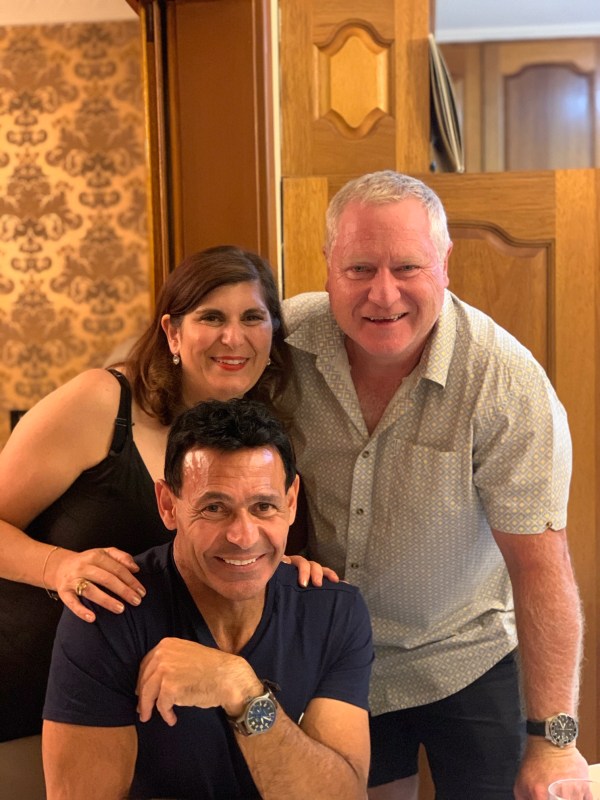
With brother Roger and Chris Dittmar – her “other brother”.
Biggest mistake in life?
Wow. I make mistakes on a daily basis. So many. Maybe I should have considered trying to have a child on my own, that was something that was definitely open to me, but ultimately I was too scared to pursue that. If I see people who went down that path, and see them with their children, I definitely wonder what my life would have been like if I had done that. Having said that, I’m also risk averse in nature and a fatalist, so I also worry about how that could have gone wrong for me, if it was being selfish and the right thing for the child. Who knows? My life is my life now, and I am happy.
What brings you joy?
Simple things, spending time with my family, spending time with my closest friends, Port Adelaide Football Club victories, achieving at work, great challenging meeting at work where we create together or navigate an issue together (my team would tell you I love working through a crisis), event time – I love the intensity and craziness of event time, the challenges and the fun that happens in with the team. Other joys? Coffee, champagne, chocolate, walking in the fresh air early morning or later in the day, 5-7pm drinks, a clean house, clean sheets on my bed … lots of things, is the truth.
How have you experienced loss?
The greatest loss I’ve experienced is the sense of loss in not having children and becoming a mum. It wasn’t until late in my 30s that I realised I really did want to have children, but it just never happened. Like losing someone you loved, I think I have mourned not being a mum and generally it’s okay but there are times when it does hit you and you have to work through it again.
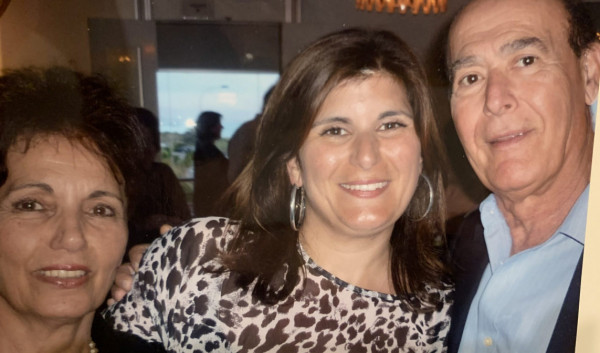
Hitaf with her parents: “I had a brilliant childhood, filled with lots of love, laughter, family, friends and food.”
What are you looking forward to?
COVID-19 has been devastating to so many and that’s heart-breaking. I’m hoping that some good will come from it. I’m hoping we come out of it as a simpler world where we prioritise what’s most important and we are more compassionate about our most vulnerable.
Who inspires you and why?
People closest to me inspire me – my mum, my dad, Roger and (his daughter) India, other family members. Close friends inspire me. People who are experts in their field inspire me. Generous people, those who give so much of their time to others. People who risk everything for their beliefs inspire me. Acts of kindness inspire me. I’m inspired when I do them.
If I was going to talk about what inspires me in life, my mentors and inspirations have been my parents, Roger for his drive and creativity and interest in developing people, Bruce McAvaney, who I was lucky enough to meet when I was 12 and who I ended up working for at the age of 23 as his researcher when we were living in Melbourne, and who is now one of my greatest friends. Bruce has definitely inspired me from a work perspective, of course, but what has stood out for me has been his humility.
One thing we don’t know about you?
I was a Sturt supporter until the age of 12, with Port as my second team.
